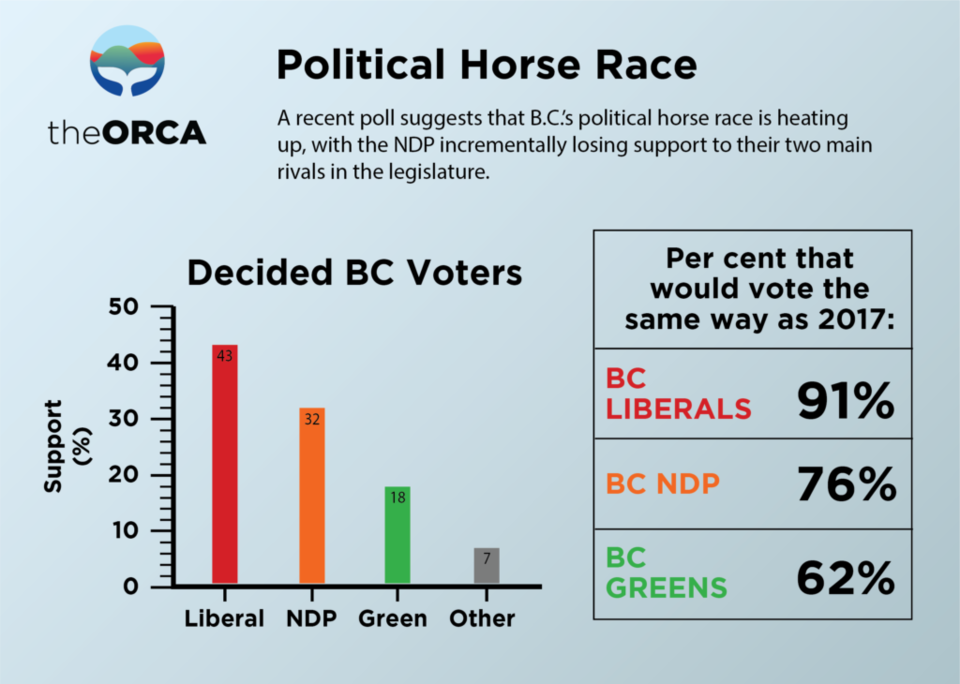B.C.’s political horse race is heating up, with the NDP incrementally losing support to their two main rivals in the legislature, according to a recent poll done for The Orca.

Set aside the seat totals (along with all that other fallout), and last year’s election saw the BCNDP and BC Liberals in a dead heat, each with 40% of the vote. The Greens had 17%, and all other parties collectively had 3%.
Since then, the BC Liberals and Greens have both slightly padded their support among decided voters, with 43% saying they would vote BC Liberal, and 18% Green. The catchall category “other” has more than doubled, to 7%.
These gains have come at the expense of the governing NDP, whose support among decided voters has slid to 32%.
If you include all voters – chiefly undecideds, and those who would not vote – the NDP’s support slides to 26%, ten percentage points behind the BC Liberals (36%) and just nine points ahead of the Greens (15%).
These numbers are hardly good news for the NDP, but some perspective is in order. A gradual decline in support is normal for governing parties, as difficult decisions pile up and some campaign promises gradually recede in the rear-view mirror. And the BC NDP know, perhaps better than any major political party in the country, just how much polls can shift at the voting booth.
One of the most interesting results of the poll came from male voters – a seismic difference between age cohorts.
Younger men, those aged between 18 and 34, tend to support the Greens (22%) and NDP (42%). But among the next cohort up – men aged 35 to 54 – that support flips almost completely, with 49% supporting the BC Liberals, and 28% supporting the NDP.
Overall, younger voters were more likely to support the NDP or Greens.
Among those who voted in 2017, BC Liberal voters were the most likely to say they’d vote the same way again, with 91% saying their support wouldn’t change. NDP voters were slightly less loyal, with 76% saying they’d vote NDP again. Green voters were the most likely to have buyer’s remorse, with 16% and 15% saying they’d vote NDP or BC Liberal, respectively.
Among other demographic factors, a higher income generally predicted a greater likelihood to support the BC Liberals. Interestingly, education levels made almost no difference. Support for all three parties remained surprisingly stable, with the greatest difference only five percentage points.
The survey, done on behalf of The Orca by One Persuasion Inc., of 1,005 British Columbians was conducted using a representative sample panel, between Sept. 4 and 7, 2018. The results have a margin of error of +/- 3.1%, 19 times out of 20. The results have been weighted by age, gender, region and past provincial vote to ensure accuracy.
Maclean Kay is Editor-in-Chief of The Orca



